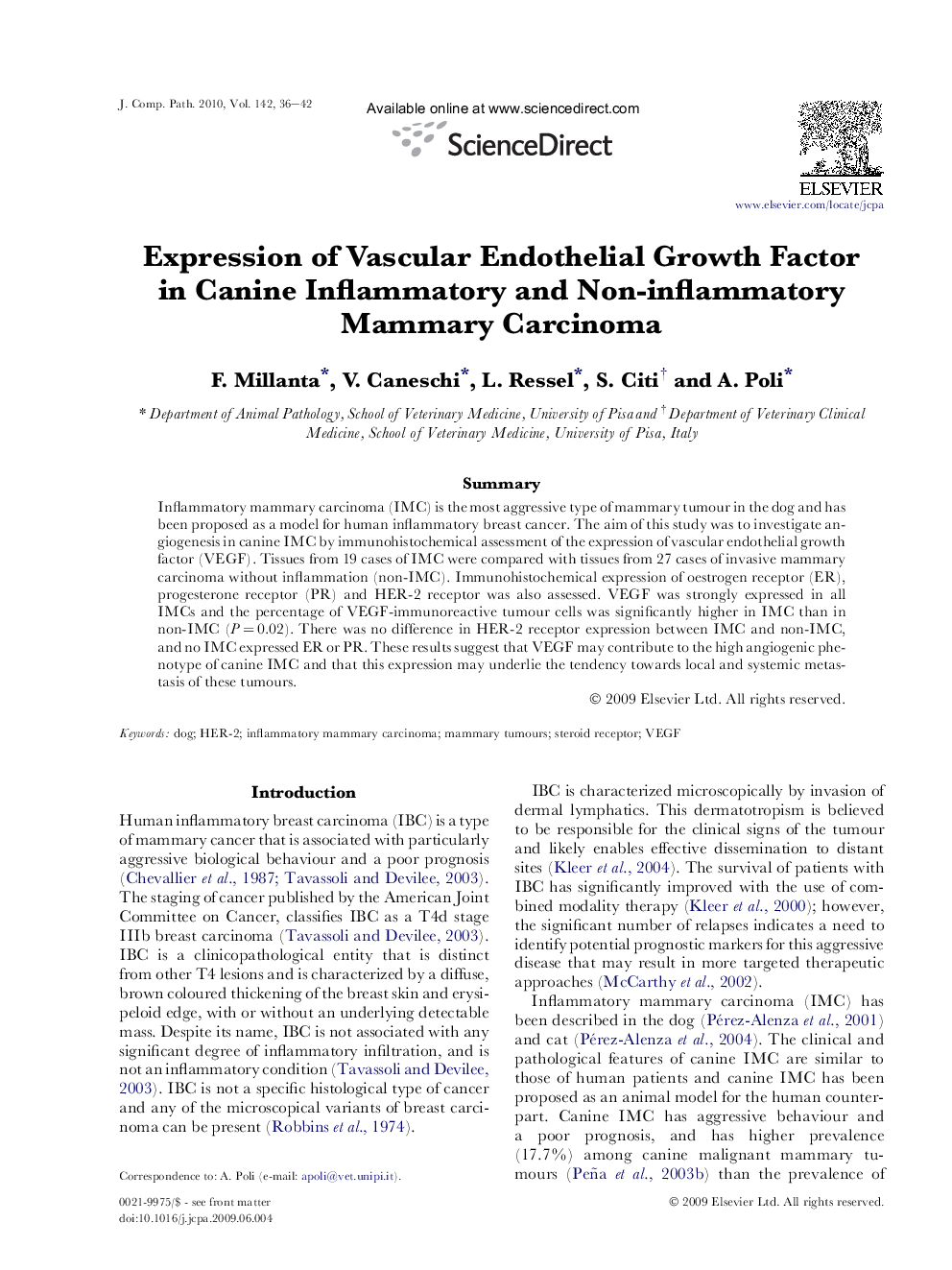| Article ID | Journal | Published Year | Pages | File Type |
|---|---|---|---|---|
| 2438102 | Journal of Comparative Pathology | 2010 | 7 Pages |
SummaryInflammatory mammary carcinoma (IMC) is the most aggressive type of mammary tumour in the dog and has been proposed as a model for human inflammatory breast cancer. The aim of this study was to investigate angiogenesis in canine IMC by immunohistochemical assessment of the expression of vascular endothelial growth factor (VEGF). Tissues from 19 cases of IMC were compared with tissues from 27 cases of invasive mammary carcinoma without inflammation (non-IMC). Immunohistochemical expression of oestrogen receptor (ER), progesterone receptor (PR) and HER-2 receptor was also assessed. VEGF was strongly expressed in all IMCs and the percentage of VEGF-immunoreactive tumour cells was significantly higher in IMC than in non-IMC (P = 0.02). There was no difference in HER-2 receptor expression between IMC and non-IMC, and no IMC expressed ER or PR. These results suggest that VEGF may contribute to the high angiogenic phenotype of canine IMC and that this expression may underlie the tendency towards local and systemic metastasis of these tumours.
